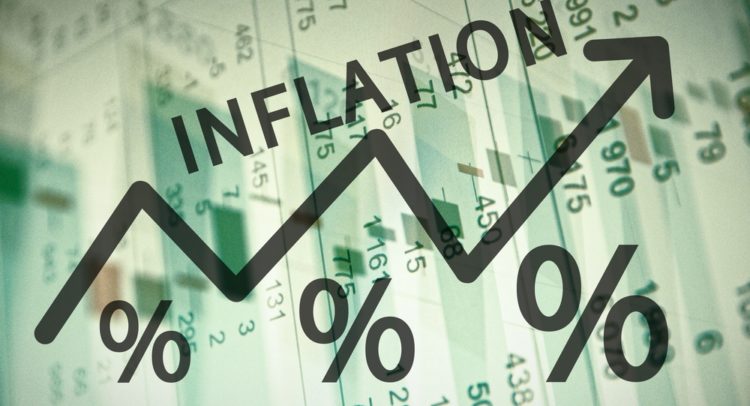Fears of inflation spinning out of control resurfaced on Wall Street on Wednesday. This follows the release of a couple of government reports showing that inflation remains elevated, sending investors running for cover.
Elevate Your Investing Strategy:
- Take advantage of TipRanks Premium at 55% off! Unlock powerful investing tools, advanced data, and expert analyst insights to help you invest with confidence.
On Wednesday morning, the U.S. Bureau of Labor Statistics (BLS) reported that the Consumer Price Index for All Urban Consumers (CPI) — a measure of inflation at the retail level — rose 0.9% in October on a seasonally adjusted basis, up from 0.4% in September. That’s an annual increase of 6.2%, the highest since November 1990, and ahead of market forecasts of 5.8%.
The CPI report comes one day after the Producer Price Report (PPI), a measure of inflation at the wholesale or producer level, which stacked at 8.6% in October of 2021, the same as in September. That was the highest level since at least November of 2010.
Energy and Food Lead Price Gains
As with the PPI gains, CPI gains were led by increases in food and energy.
Here’s a quote from the CPI report:
“The monthly all items seasonally adjusted increase was broad-based, with increases in the indexes for energy, shelter, food, used cars and trucks, and new vehicles among the larger contributors. The energy index rose 4.8 percent over the month, as the gasoline index increased 6.1 percent and the other major energy component indexes also rose. The food index increased 0.9 percent as the index for food at home rose 1.0 percent.”
Wall Street Sells
In most trading sessions, investors have shaken off inflation concerns, subscribing to the Federal Reserve’s theory that inflation is transitory. Fed officials have repeatedly argued that the surge in commodity prices is temporary due to bottlenecks as the U.S. economy tries to leave behind the pandemic.
That wasn’t the case Wednesday, as the string of high inflation numbers began to defy the Fed’s theory, meaning that the nation’s central banks may have been “behind the curve” and have to raise short-term interest rates sooner than later.
Naturally, that would make risky assets less appealing to conservative investors. Thus, the sell-off across almost every asset category.
Disclaimer: The information contained in this article represents the views and opinion of the writer only, and not the views or opinion of TipRanks or its affiliates, and should be considered for informational purposes only. TipRanks makes no warranties about the completeness, accuracy or reliability of such information. Nothing in this article should be taken as a recommendation or solicitation to purchase or sell securities. Nothing in the article constitutes legal, professional, investment and/or financial advice and/or takes into account the specific needs and/or requirements of an individual, nor does any information in the article constitute a comprehensive or complete statement of the matters or subject discussed therein. TipRanks and its affiliates disclaim all liability or responsibility with respect to the content of the article, and any action taken upon the information in the article is at your own and sole risk. The link to this article does not constitute an endorsement or recommendation by TipRanks or its affiliates. Past performance is not indicative of future results, prices or performance.
















